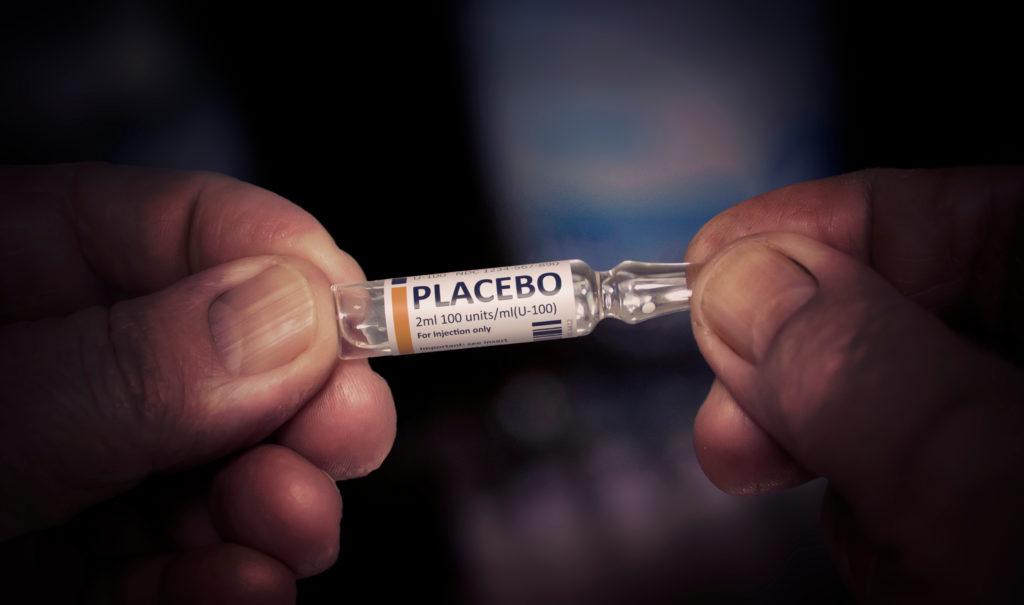Many sponsors err on the side of reluctance when incorporating new technology in clinical trials. This is because some technologies have the potential to overly burden not only study operations but also (and most importantly) patients. In this blog, we walk through Cognivia’s approach – and how we make implementing new tech an easy choice.
Adopting new technologies is crucial to advancing clinical trials into the future. However, clinical trial technologies can only provide true value if they don’t add burden to operations or patients.
From wearables to telemedicine to machine learning (ML) and big data analytics – there are many amazing tools at the industry’s disposal well poised to improve clinical trial results. In fact, higher rates of trial failures have driven an increased demand for technological innovation in clinical trials.
Implementing Technology to Mitigate Placebo Response & Trial Failures
One area of interest relating to these higher rates of failure: the placebo response.
A larger than expected placebo response can compromise assay sensitivity and lead to a failed or inconclusive trial. This has been a challenge in the industry for years, but today’s technology – in particular, predictive modeling – offers a new way to manage this problem.
With ML, it is possible to calculate baseline placebo responsiveness scores for patients, allowing study statisticians to use this score as a covariate, cut through the noise and determine true treatment efficacy. To do this, studies need three things:
- A trained ML model in the indication
- A validated questionnaire that measures personality traits, expectations and other factors
- The combination of the above to produce a score that can be used to decrease variance and increase study power.
With Cognivia’s Placebell©™, this process is readily available in a number of indications (and it works!). However, it begs the question: how much burden will this added ML model, questionnaire, and study covariate have on the patients and study as a whole?
The short answer: Cognivia’s technology adds value without adding burden. Keep reading to learn how we approach the project to make this possible.
#1. Experienced Project Leaders
The professional team within Cognivia all have significant experience in clinical operations and managing clinical trials.
This means they know what a clinical trial is, understand the constraints and challenges of clinical trial project managers, and speak the same language as you.
Because of this, we’ve tailored our Project Management approach to ease the integration of our technology into the trial. We know how burdensome trials can be and are committed to making sure our technology doesn’t create more burden for you.
In fact, our project leaders serve as a representative for you during the entire implementation process. They follow the project from A to Z and have a global view of what needs to be done by different functions to meet your expectations. We don’t just give you technology and walk away: we are with you every step of the way.
#2. Flexible Involvement for Study Sponsor
While our team is ready to work closely with you to implement Placebell, we understand that different organizations have different needs.
Some clients like to have more meetings and deeper discussions into the process so they understand all the details. Others prefer to take a step back with tailored communication. That way, they can focus on important initiatives while we get the questionnaire and indication model up and running.
Other technology vendors in clinical trials are not as involved – and this ties back to our experience in clinical operations. We make everything clear up front and have proactive communication in terms of regular meetings if needed – but, again, we’re very flexible.
#3. Clinical Trial Protocol & Submission Package Support
The study sponsor is accountable to the clinical trial protocol. So, yet another item to disclose in the protocol can cause headaches. That’s why we are here to help; we can propose revisions or prepare wording to insert into the protocol, so you don’t have to worry about that additional burden. We can also provide wording for the informed consent.
Similarly, we can share screenshots of our questionnaire platform that are easy to insert into your submission package to the Ethics Committee.
#4. Easy to Use & Secure Platform
Finally, the elephant in the room: How burdensome is this technology to the patient?
By nature, the questionnaire that gathers patient data takes some time to complete by the patient. However, the questionnaire can be administered when and wherever the study sponsor deems most appropriate and efficient. Usually, this can occur during the same step you collect other important patient data.
To outweigh the time it takes to complete, we compensate by delivering an extremely user-friendly platform. Every question has the same possible 5 answers, which makes it easy to follow.
We also provide a number of training materials for CRAs and study sites:
- Slide decks for procedures
- PDF user guides
- Videos
However, these materials are typically not even needed because the platform is so easy to navigate.
Conclusion
Technology advancements have a lot to offer to the world of clinical trials. But it’s important to select solutions that add value without adding burden.
When working with Cognivia to implement our Placebell technology, we minimize operational and patient burden – while maximizing your ability to improve clinical trial success rates.
Find out how to easily apply our predictive methodologies in your study by getting in touch today.





